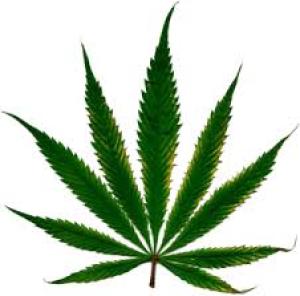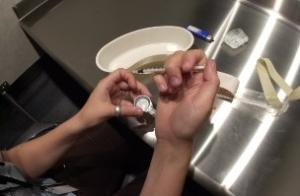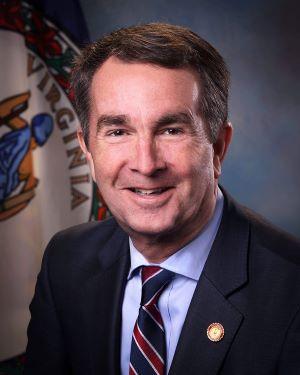Here are the biggest world drug policy stories of 2020.
Which states could legalize marijuana in 2021? Here are some of the brightest prospects.
There's a bad news appeals court ruling out of Philadelphia, but there could still be hope in other parts of the country.
Medical marijuana bills are being filed in state legislatures, and more.
A major federal operation in Georgia sweeps up three prison guards, three Virgin Island cops are in hot water after a planeload of cocaine got caught in Miami, and more.
A federal appeals court has put the kibosh on a proposed Philadelphia safer injection site, a Michigan prosecutor says no more magic mushrooms prosecutions, and more.
State legislatures are beginning to turn their sights to marijuana legalization, the Trump administration loosens restrictions on prescribing buprenorphine for opioid use disorder, and more.
Marijuana legalization and medical marijuana bills get filed in Nebraska, the US and Mexico spar over the undone arrest of a former defense minister, a Washington state bill to allow home cultivation gets a hearing, and more.
As we wave an eager goodbye to 2020 in the rearview mirror, it's time to assess the good, the bad, and the ugly when it comes to drug policy and drug reform at the international level. As in other realms of human behavior, the coronavirus pandemic is inescapable, but even as the pandemic raged, drug policy developments kept happening. Here are the biggest world drug policy stories of 2020:
The Coronavirus Pandemic and the World of DrugsAs with virtually every other aspect of human affairs, the year's deadly coronavirus pandemic impacted the world of drugs, from disruptions of drug markets and anti-drug policing to drug trafficking groups as social distancing enforcers, fallout on efforts to reform drug policies, and beyond.
Early on, there were reports that Mexican drug traffickers were raising wholesale meth and fentanyl prices because of disruptions in the precursor chemical supply, and that pandemic lockdowns had disrupted the cocaine supply chain, driving down the farmgate price for coca and endangering the livelihoods of nearly a quarter-million coca-producing families in the Andes.
But some things couldn't be disrupted: Just a day after closing its famous cannabis cafes in response to the pandemic, the Dutch reopened them as the government was confronted with long lines of people queuing up to score after the ban was initially announced. In France, the price of hashish nearly doubled in a week as increased border controls due to the pandemic put the squeeze on. By midyear, the UN Office on Drugs and Crime reported pandemic-related border closures, lockdowns, and flight shortages were making drugs more expensive and difficult to obtain around the world.
Those same drug organizations struggling with the pandemic took on roles normally assumed by government in some countries. In Mexico, the Gulf Cartel and Los Viagras handed out food to poor families in Tamaulipas and the Sinaloa Cartel and the Jalisco New Generation Cartel did the same in Guadalajara, spurring President Andres Manuel Lopez Obrador to acknowledge their efforts and implore them to knock it off and just stay home. Instead, the Sinaloa Cartel locked down the city of Culiacan, its home base, and patrolled the streets in heavily armed convoys to enforce a curfew. In Brazil, Rio de Janeiro drug gangs enforced social distancing and handed out cash and medications as the government of rightist authoritarian populist President Jair Bolsonaro was largely absent and in denial about coronavirus. In Colombia, with the government missing in action, drug gangs and armed groups enforced lockdown orders, even killing people who didn't comply, according to Human Rights Watch.
Some countries took positive steps to ameliorate these effects of the pandemic. In Great Britain, the government agreed to hand out methadone without a prescription to those already receiving it and shortly later began allowing monthly buprenorphine injections for heroin addicts. In Canada, British Columbia early on moved to increase a "safe supply" of drugs that registered nurses and registered psychiatric nurses to prescribe, make more medications available, and expand eligibility to people who are at risk of overdose, including those who may not necessarily be diagnosed with a substance use disorder. The province followed that move by lowering barriers to prescription medications, increasing the supply of opiate maintenance drugs and even dispensing some of them via a unique vending machine. By providing a safe supply of legal drug alternatives, the province hoped to lower a sudden spike in drug overdose deaths that coincided with the coronavirus outbreak in Vancouver.
Not everybody let a measly little coronavirus get in the way of their drug war. In Colombia, President Ivan Duque ordered a nationwide lockdown in March, but exempted coca eradicators and launched a major offensive against small producer coca farms. And Filipino President Rodrigo Duterte let his drug war rage on in the midst of the pandemic despite imposing a national partial lockdown in March. At least nine people were killed by unknown gunmen in Cebu Province alone. "Reports of drug-related killings continuing amid the lockdown order are deeply concerning, but not surprising," said Rachel Chhoa-Howard of Amnesty International. "The climate of impunity in the Philippines is so entrenched that police and others remain free to kill without consequence." In September Human Rights Watch noted the pace of acknowledged drug war killings by police had doubled. Duterte has also threatened to have the police and military shoot people who violate quarantine.
The coronavirus also wreaked havoc with drug reform initiative signature gathering campaigns in the US, preventing several marijuana legalization and one drug decriminalization initiative from qualifying for the ballot this year, and played a role in delaying marijuana legalization in Mexico when its Senate shut down in the spring because of the pandemic.
UN Commission on Narcotic Drugs Votes to Remove Cannabis from Most Restrictive Drug Schedule
In an historic move on December 2, the 53 member states of the Commission on Narcotic Drugs (CND), the UN body charged with setting drug policy, voted to remove cannabis from Schedule IV of the United Nations' drug classification system as they met in Vienna. Cannabis was both a Schedule I and a Schedule IV drug under the international drug treaties. Schedule I includes "substances that are highly addictive and liable to abuse or easily convertible into those (e.g. opium, heroin, cocaine, coca leaf"), while Schedule IV includes Schedule I drugs with "particularly dangerous properties and little or no therapeutic value" (e.g. heroin, carfentanil).
The vote removing cannabis from Schedule IV means the global anti-drug bureaucracy now recognizes the therapeutic value of cannabis and no longer considers it "particularly liable to abuse and to produce ill effects." With medical marijuana legal in dozens of countries in; one form or another, the ever-increasing mountain of evidence supporting the therapeutic uses of cannabis, not to mention outright legalization in 15 American states Canada and Uruguay, with Mexico about to come on board, this decision by the CND is long past due, but nonetheless welcome.
The UN Common Position on Drug Policy Gains Traction
Change at the United Nations comes at a glacial pace, but it can and does come. The shift away from punitive, law enforcement-heavy approaches to drug use has been building for years and picked up steam at the 2016 UN General Assembly Special Session (UNGASS) on Drugs in 2016 and advanced further with the adoption of the UN Common Position on Drug Policy in 2018.
That approach, which seeks to get all the UN agencies involved in drug policy, public health, and human rights on the same page, explicitly calls for the decriminalization of drug use and possession for personal use. Among the position's directions for action is the following: "To promote alternatives to conviction and punishment in appropriate cases, including the decriminalization of drug possession for personal use, and to promote the principle of proportionality, to address prison overcrowding and overincarceration by people accused of drug crimes, to support implementation of effective criminal justice responses that ensure legal guarantees and due process safeguards pertaining to criminal justice proceedings and ensure timely access to legal aid and the right to a fair trial, and to support practical measures to prohibit arbitrary arrest and detention and torture."
At least 30 countries have instituted some form of drug decriminalization (although in many it is only marijuana that has been decriminalized), and the Common Position is providing breathing space for others that may be inclined to take the plunge. In 2020, the US state of Oregon broke ground by becoming the first state to decriminalize the use and possession of all drugs, and just a few hundred miles to the north and across the Canadian border, the city council of Vancouver, British Columbia, voted to decriminalize and seek an exemption from the federal government to do so.
Decriminalization could also be around the corner in Norway, where a proposal first bruited in 2017 could pass some time next year. And Ghana (see below) has also effectively decriminalized drug use and possession. With a more consistent message from the UN, which the Common Position represents, we can expect further progress on this front in years to come.
The Philippine Drug War Faces Increasing Pressure
Four years into the government of Rodrigo Duterte, the Philippines remains embroiled in a bloody war on drug users and sellers, but is facing increasing pressure from human rights groups, domestic critics, and international institutions over mass killings that are believed to now total more than 30,000.
In a June report, the UN Office of the High Commissioner on Human Rights said that tens of thousands of people had been killed in President Rodrigo Duterte's bloody war on drug users and sellers amid "near impunity" for police and the incitement of violence by top officials. The report said that rhetoric may have been interpreted as "permission to kill."
Michelle Bachelet, UN High Commissioner for Human Rights, called for independent investigations into the killings and said her office was ready to help credible domestic Philippine or international efforts to establish accountability. Two months later, during the 45th session of the UN Human Rights Council, Bachelet called for an end to the policies and rhetoric that led to abuse and killings. She acknowledged some small steps taken by the Duterte government but warned "there is clearly an urgent need to revoke the policies that continue to result in killings and other human rights violations, to bring to justice the perpetrators, and to halt the use of rhetoric inciting violence against people who use or sell drugs."
In October, Duterte said he accepted responsibility for drug war killings, but only those acknowledged by police, not the thousands committed by shadowy vigilantes. That same month, global civil society groups including StoptheDrugWar.org (the publisher of this newsletter) and Movement for a Free Philippines launched the Stand for Human Rights and Democracy campaign to keep the pressure on. The campaign launch included an "Autocrat Fair" demonstration outside Trump International Hotel in Washington, DC; and an accompanying video, "Trump and Duterte -- Allies in Violence." An event organized by StoptheDrugWar.org on December 22 discussed the role of the International Criminal Court (ICC).
The pressure on the Duterte government only heightened at year's end, when the ICC's Office of the Prosecutor issued a report saying there was "reasonable basis to believe" Filipino forces committed crimes against humanity in Duterte's drug war. That leaves one stage left in the Office's "preliminary examination," admissibility. For the ICC to have jurisdiction, prosecutors must show that the Philippine justice system lacks a legitimate or capable response to the killings. Chief Prosecutor Fatou Bensouda has promised a decision will be by mid-2021, when her term ends, over whether to seek authorization from the court to open a formal investigation. She has also pointedly warned that the court's resources fall badly short of what's needed to carry out their mission, which affects how cases are prioritized, and may affect whether the new prosecutor initiates cases.
Even as Drug War Violence Continues Unabated, Mexico is About to Become the World's Largest Legal Marijuana Market
There is no end in sight to Mexico's bloody drug wars. The year began with the announcement that 2019 was the most murderous year in recent history, with some 35,588 recorded homicide victims. As the year ends, 2020 appears on track to equal or surpass that toll, with the country registering about 3,000 murders a month.
As mass killing after mass killing took place throughout the year, the number of dead wasn't the only thing rising either. In January, the government announced that the number of "disappeared" people in the country was around 61,000, up from an estimated 40,000 in mid-2019. By July, the number of those officially missing had risen to 73,201 as prohibition-related violence ripped through the country.
While President Andres Manuel Lopez Obrador came into office in 2018 critical of the role of the military in the drug war, and with a plan to reduce crime and violence by focusing on their root causes, in May he renewed orders keeping the military on the streets for another four years. "His security strategy is not working and that is why he has had to order with this decree for the Armed Forces to support public security," security specialist Juan Ibarrola told the Milenio newspaper at the time.
The following month, Lopez Obrador signaled that perhaps it wasn't security strategy that wasn't working, but drug prohibition. He released a plan to decriminalize drugs, and urged the US to do the same. Mexico's current "prohibitionist strategy is unsustainable," the plan said.
As the drug war chugged along, US-Mexico relations took a hit in October, when DEA agents arrested Mexico's former defense minister in Los Angeles on drug and money laundering charges. Loud protests from Mexico eventually resulted in his release, but in December, Mexican lawmakers chafing at US heavy-handedness voted to restrict the activities of foreign agents in the country.
Even as the drug wars rage, there is significant progress on another drug policy track. As the year comes to an end, Mexico is one vote in the Chamber of Deputies away from legalizing marijuana. The government-supported legalization bill, crafted in response to a ruling from the country's Supreme Court that said marijuana prohibition must end, passed the Senate in November after delays caused by political infighting and shutdowns due to the coronavirus.
Under an order from the Supreme Court, the Congress had until December 15 to act, but the Chamber of Deputies delayed the vote, saying it needed more time to study the bill, and the Supreme Court agreed to grant one more extension, giving the Chamber of Deputies until the end of the next legislative session in April to get the job done. President Lopez Obrador downplayed the delay, calling it a matter of "form not substance." And Mexico is waiting to inhale.

Bolivia display at the 2008 Commission on Narcotic Drugs
Long-time Bolivian leader Evo Morales, a former coca growers union leader who won the presidency in 2005 and was reelected twice, was forced from office and fled the country after extended protests in the wake of disputed elections in November 2019. The self-appointed interim right-wing government worked to suppress Morales' Movement to Socialism and harassed harassed coca producers in the name of the war on drugs.
The coca growers stood firm, however mobilizing to blockade roads to protest delays in promised elections. When those elections finally came in October, voters returned the MAS to power, electing Morales' former economics minister, Luis Arce, without the need for a runoff election.
Arce said that while he has no problem with the United States, he will maintain Morales' coca policy, under which legal coca cultivation was allowed, and that he wants to expand the country's industrial coca production.
Colombia, Coca, Cocaine, and Conflict
Four years after the truce between the Colombian government and the leftist rebels of the FARC was supposed to bring peace to the country, peace remains elusive as the rightist government of President Ivan Duque continues to wage war against other leftist rebels, drug traffickers, and coca-growing peasants.
Under pressure from the US, the Duque government began the year by moving to resume the aerial spraying of coca fields. This plan was rejected by state governors, who said they supported alternative development and voluntary crop substitution and wanted President Duque to actually implement the 2016 peace accords.
Instead, the government attempted to pull out of a crop substitution monitoring program with the UN, preventing a pending evaluation of the effectiveness of planned forced coca eradication, although it later backtracked. That prompted coca farmers to call "bullshit" on Duque's duplicity, not only around crop substitution and eradication, but on the government's efforts to downplay a campaign of assassination against coca substitution leaders.
Indeed, human rights remained a major concern throughout the year, as a UN peace mission condemned a spike in massacres in August, and a month later, the International Crisis Group demanded the government stop the killing of activists. The group said the government must prioritize communities' safety over military operations against armed groups and coca eradication efforts. Human rights were no concern for US Secretary of State Mike Pompeo, however, who promised Colombia more anti-drug aid the following month.
On another track, efforts to reform the country's drug laws continue. Bills to legalize marijuana were defeated late in the year, as right-wing factions aligned with Duque killed them. A bill to legalize cocaine was introduced in December, with cosponsor Senator Ivan Marulanda saying the bill would allow a legal cocaine supply for Colombian cocaine users -- use and possession is legal in Colombia -- and that the government could buy up the entire coca crop.
The year ended as it began, with the government still talking about plans to restart aerial fumigation even it claimed it would meet its coca eradication goal. Meanwhile, coca and cocaine production remain at world-leading levels.
Progress in Africa
Attitudes towards drugs and drug users are changing in Africa, and 2020 saw significant advances. It was in July 2019 that health, drug control and population ministers from member states of the African Union met in Cairo to forge a continental action plan for adopting more balanced policies toward drug use.
At that meeting, the Union's Department for Social Affairs called on member states to adopt master plans for drug policy by 2023. Such plans create a national framework for deciding which agencies should deal with illicit drug use in a way that deals with both drug supplies and demand reduction and ensure that not just law enforcement but also treatment and rehabilitation issues are addressed.
Zimbabwe had begun work on its own master plan years earlier -- back in 1999 -- but that effort had stalled until 2016 when, thanks to a civil society group, the Zimbabwean Civil Liberties and Drug Network (ZCLDN), the effort was reignited. The country hasn't passed a reformist master plan yet, but thanks to years of organizing and alliance-building, reform is coming.
In July, ZCLDN and regional ally groups worked with the Ministry of Health and Child Care to draft treatment and rehabilitation guidelines that formally incorporated harm reduction practices, a big step forward. In September, the group brought together civil society groups and the government's inter-ministerial committee charged with creating the master plan, helping to lay the groundwork for the plan to be adopted early in 2021. But first, it has to be approved by the cabinet, the attorney general's office, and then parliament. The work was not finished in 2020, but it is well underway.
Meanwhile in West Africa, Ghana actually passed a major drug reform law, the Narcotics Control Commission bill, in March. It only took five years from the time the bill was first introduced. Drafted with the intent of treating drug use as a public health issue, the law effectively decriminalizes drug possession, replacing prison terms of up to ten years with fines of roughly US $250 to $1,000. The new law also clears the way for the implementation of harm reduction services, which had previously been outlawed. And it allows for the production of low-THC cannabis products, such as industrial hemp and CBD.
The colonial legacy weighs heavy on Africa, but when it comes to drug policy, African nations are beginning to forge their own, more humane paths.
Thanks to a Plant, Afghanistan Becomes a Meth Producer
For years now, Afghanistan has been the world's number one supplier of opium poppies and the heroin derived from it, accounting for about 90% of global production. Now the war-torn country is diversifying, becoming a big-time player in the methamphetamine trade thanks to a plant common in the country and low-tech techniques for using it to make meth.
That plant is ephedra, from which meth's key ingredient -- ephedrine -- is created, and in a November report, the European Monitoring Center for Drugs and Drug Addiction (EMCDDA) warned that while its findings were provisional, "the data reported here on the potential scale of ephedrine and methamphetamine production emanating from this remote corner of Afghanistan, the income it generates and the speed at which it has emerged are both surprising and worrying." The report cited seizures of Afghan meth in Sri Lanka, Indonesia and Australia, and tax revenues in the millions for the Taliban.
New Zealand Narrowly Rejects Marijuana Legalization
New Zealand had a chance to become the next country to legalize marijuana but rejected it. Early on, polling suggested that a referendum to legalize marijuana faced an uphill battle, and as early election results came in in October, the polls proved accurate, with the referendum faltering with only 46% of the vote. In the final tally, the margin narrowed, but the referendum still lost narrowly, garnering 48% of votes.
Kiwis were not ready to become the second commonwealth country to legalize marijuana, after Canada, On the other hand, voters approved a referendum to allow voluntary euthanasia for the terminally ill by a margin of two-to-one.
back to top
Last year, the number of states that have ended marijuana prohibition reached 15 plus the District of Columbia, as voters in four states -- Arizona, Montana, New Jersey, and South Dakota -- legalized it via the initiative process. This isn't an election year, so any states that attempt to legalize in 2021 will have to do so through the much more cumbersome legislative process, but at least a handful are poised to do so.

It is no coincidence that the early progress toward state-level legalization has been led by states that allow for voter initiatives. State legislatures badly trail public opinion on the issue, and beyond that, the legislative process itself is messy, beset with horse-trading, and progress of a bill is beholden to key legislative gatekeepers -- the committee chairs and majority leaders. And because crafting legislation is a complex process, getting a legalization bill through both chambers and signed by a governor is a process that generally takes not one, but two or three or even more years.
Legalization bills are likely to appear in nearly every state that has not already freed the weed, but it's likely to be an uphill struggle this year for most of them. The five states listed below have already been grappling with marijuana reform for years though, they have governors who are backing legalization, and they will only be emboldened by the Democrats' majorities in the US House and Senate (which could pass federal legalization this year) and by budgetary pressures related to the pandemic to push forward. If all goes well, by years' end, the number of legal marijuana states could top 20.
Here are the five best state marijuana legalization prospects for 2020:
Connecticut
Marijuana legalization has been fermenting in the legislature for several years now, but in November, Democrats added to their legislative majorities, increasing the odds that the issue will move this year. Governor Ned Lamont (D) just reiterated his call for legalization in his State of the State address, saying: "I am working with our neighboring states and look forward to working with our tribal partners on a path forward to modernize gaming in our state, as well as the legislature on legalization of marijuana. Sports betting, internet gaming, and legalized marijuana are happening all around us. Let's not surrender these opportunities to out-of-state markets or even worse, underground markets." And House Speaker Matthew Ritter (D) is vowing to take the issue to the voters if the legislature doesn't act. "I think it'll be a very, very close vote in the House," he said at a pre-session press conference. "But if we do not have the votes -- and I'm not raising the white flag -- I want to be very clear: We will put something on the board to put to the voters of the state of Connecticut to amend the state constitution to legalize marijuana."
New Mexico
The Land of Enchantment saw a marijuana legalization bill get through one Senate committee last year only to be killed in another, but with the support of Governor Michelle Lujan Grisham (D), who formed a working group on legalization in 2019, and the ousting of some anti-reform legislators in the November elections, this could be the year it gets over the finish line. Lujan Grisham has argued that if the state had legalized it last year, it could have helped reduce revenue shortfalls because of the coronavirus. And earlier this month, she emailed supporters to jab at legislative legalization foes: "Unfortunately, the Legislature couldn't come to an agreement, even though the economic impact would have created thousands of new jobs and sustainable state revenue sources to invest in New Mexico's future," she wrote. The Senate had been the biggest obstacle to moving a legalization bill, but now the Democratic senators who voted with Republicans to kill it last year are out. The state has a 60-day "short session" that begins January 19. It could be the first out of the gate this year.
New York
Governor Andrew Cuomo (D) has been calling for years for marijuana legalization, but measures in the legislature have always stalled because of disputes over taxes, social equity provisions, and pure legislative power plays. Now, like Connecticut, the Empire State is feeling the pressure of neighboring states having already legalized it, as well as increased budgetary pressure because of the pandemic, and Cuomo is once again calling for legalization. In his State of the State address this week, Cuomo again proposed legalization: "I think this should have been passed years ago," he said in a briefing. "This is a year where we do need the funding, and a lot of New Yorkers are struggling. This year will give us the momentum to get it over the goal line." Democrats now have a supermajority in both chambers, which both makes it easier to pass legislation despite Republican objections and makes it easier for the legislature to override any Cuomo's veto of a legalization bill over provisions he may not like. A legalization bill, SB 854, has already been filed in the Senate. For New York, the fifth time may be the charm.
Rhode Island
Governor Gina Raimundo (D) and legislative leaders are all on board with moving forward on legalization, although the governor wants a state-run model and some legislators favor a private model. "The time has come to legalize adult cannabis use," Senate Majority Leader Michael McCaffrey (D) said in November. "We have studied this issue extensively, and we can incorporate the practices we've learned from other states." He and Senator Joshua Miller (D), who spearheaded past efforts to get legalization passed, have been tasked by Senate President Dominick Ruggerio (D) with coming up with workable legislation this session. And the House is on board, too, with new Speaker Joseph Shekarchi (D) saying he is "absolutely" open to legalization and that the House is already "very close" to having enough votes to pass it. There are a couple of complicating factors for Rhode Island now, though: The division over state vs. private sales and the fact that Raimundo will likely soon be leaving office after being nominated as commerce secretary in the new Biden administration.
Virginia
Two legalization bills, HB 269 from Delegate Steve Heretick (D), and Delegate Lee Carter's (D) HB 87, have already been filed this year, and Gov. Ralph Northam (D) has said he supports marijuana legalization: "Legalizing marijuana will happen in Virginia," he said recently. At the time, Northam laid out his requirements for such a bill -- social, racial, and economic equity; public health; protections for youth; upholding the state Clean Air Act; and data collection -- and said it could take up to two years, but growing public and political support and financial pressures related to the pandemic could well speed up that timeline.
back to top
With a decision Tuesday, the 3rd US Circuit Court of Appeals has brought to a screeching -- if hopefully temporary -- halt for efforts to establish a groundbreaking permitted safer injection facility in the city of Philadelphia. In the case of US v. Safehouse, the nonprofit group set to run the site, the court held that allowing the supervised onsite consumption of illegal drugs "will break the law" because it conflicts with a 35-year-old amendment to the Controlled Substances Act aimed at crack houses.

The Vancouver safer injection site. We still can't have those in America. Yet. (vcha.ca)
Never mind that the city is in the midst of an opioid overdose epidemic and needs to try something new after decades of failed prohibitionist drug policies. The sanctity of the drugs laws must be maintained, the court held: "Though the opioid crisis may call for innovative solutions, local innovations may not break federal law," it opined.
This is just the latest twist in the years-long effort to address an opioid overdose outbreak in the city that began about a decade ago, with overdose deaths nearly doubling between 2009 and 2018 and numbering more than a thousand a year every year since 2016. The crisis led to the formation of a Mayor's Task Force to Combat the Opioid Epidemic in Philadelphia, which issued a final report and recommendations in 2017 calling on the city to consider rolling out overdose prevention services, including safe injection sites, or, as Safehouse refers to them, overdose prevention sites.
Safehouse was formed to make that possibility a reality. Led by Jose A. Benitez, the executive director of the harm reduction group Prevention Point Philadelphia, Safehouse picked up a powerful ally in board member Ed Rendell, the former governor of the state and mayor and district attorney of Philadelphia. With Rendell's clout, the organization had overcome local obstacles and was preparing to open the first legal safe injection site in the country when Attorney General William Barr's Justice Department struck.
The US Attorney for the Eastern District of Pennsylvania filed a civil lawsuit in February 2019 asking a federal judge to find safe injection sites illegal under the Controlled Substance Act's "crack house" statute, throwing plans to open up into limbo. Eight months later, the court held that "the ultimate goal of Safehouse's proposed operation is to reduce drug use, not facilitate it, and accordingly, [the "crack house" statute] does not prohibit Safehouse's proposed conduct."
A February 2020 ruling from the same court reiterated the legality of safe injection sites in the Eastern District, but that summer, the judge ordered Safehouse to pause amidst the coronavirus pandemic and the police violence protests. Meanwhile, the US Attorney appealed the ruling that the proposed safe injection site was legal, with oral arguments held in November, and the 3rd Circuit's decision issued this week.
The Justice Department pronounced itself pleased.
"The Court's decision reaffirms that 'safe' injection sites are a violation of federal law," said Acting Attorney General Jeffrey A. Rosen in a statement. "The Department supports efforts to curb the opioid crisis ravaging this country, but injection sites are not the solution. There are more productive ways to address drug abuse, and today's ruling by the Third Circuit has confirmed that these sites are illegal and therefore not the answer."
"The rule of law is still alive and well in Philadelphia -- having been re-affirmed by the U.S. Court of Appeals for the Third Circuit, which held that it is a federal crime to open a heroin injection site or 'consumption room' for illegal drug use," added US Attorney for the Eastern District of Pennsylvania William M. McSwain. "The 3rd Circuit's opinion is a faithful reading of the statute's plain language and is consistent with Congress's intent to protect American neighborhoods from the scourge of concentrated drug use."
Reform advocates saw it quite differently.
"As the COVID-19 pandemic is exacerbating the already devastating overdose crisis, the Third Circuit's reversal of the earlier court's decision -- which held that safe consumption sites do not violate federal law -- will inevitably result in the unnecessary loss of countless lives," Lindsay LaSalle, managing director of policy for the Drug Policy Alliance (DPA), said in a statement. "The 3rd Circuit's decision is misguided -- it is abundantly clear that Congress never intended to criminalize legitimate public health interventions through [the 'crack house' statute]."
The 3rd Circuit's decision is precedential, meaning it holds throughout the district, which includes Delaware, New Jersey, Pennsylvania, and the US Virgin Islands. But other jurisdictions, such as San Francisco and New York City, where similar efforts are underway, are not bound by it, and DPA is encouraging groups pursuing such efforts to "continue to work toward authorization and implementation of supervised consumption sites to address the overdose crisis in their cities and states."
There may be help coming in the new Congress and Biden administration as well. Advocates say they will seek action in Congress to clarify that safer injection facilities should be permitted, and from the Biden Justice Department to provide guidance to US Attorneys to lay off on them.
back to top
Medical marijuana bills are being filed in state legislatures, and more.
NebraskaNebraska Medical Marijuana Bill Filed. State Senator Anna Wishart (D-Lincoln) has filed Legislative Bill 474, which would create a system of regulated medical marijuana distribution for qualifying patients. She filed a similar bill two years ago, which was defeated. A medical marijuana initiative last year qualified for the ballot but was thrown off by the state's Supreme Court.
New Mexico
New Mexico Court Rules Inmates Can Have Access to Medical Marijuana. A district court judge in Albuquerque ruled in late December that inmates at the Bernalillo County Metropolitan Detention Center who are qualifying medical marijuana patients can use the substance while under correctional control. It is unclear whether other state and local jails would voluntarily comply with the ruling, but it has set a precedent for other state courts. The ruling came in the case of man serving a 90-day house arrest sentence.
South Carolina
South Carolina Medical Marijuana Bill Pre-Filed. Once again, state Senator Tom Davis (R-Beaufort County) has filed a medical marijuana bill, S 150, the Compassionate Care Act. Davis has filed similar bills for nearly a decade. This year could be the charm, he predicted. "The bill has been thoroughly vetted," said Davis. "It's been looked at by the SC Medical Association. It has been looked at by law enforcement. We have a very good tightly regulated medical cannabis bill, and what it seeks to do is empower physicians."
Tennessee
Tennessee Lawmaker Files Bill to Protect Out-of-State Medical Marijuana Patients. State Senator Sarah Kyle (D-Memphis) has filed a bill that would allow patients with a valid medical marijuana registration card to possess up to half an ounce without penalty. Since Tennessee doesn't have a medical marijuana program, SB 0025 would only apply to outstate visitors from states that do have medical marijuana programs.
Utah
Utah Bill Would Allow Any Doctor to Recommend Medical Marijuana. State Senator Evan Vickers (R-District 28) is supporting a bill that would allow any doctor to recommend medical marijuana. Currently, doctors must register as a qualified medical provider to do so, but under a previous law which expired at the end of 2019, they did not have to do so. The bill would eliminate a major bottleneck for patients, supporters said. "If they don't have a physician in their area, especially in a rural area, they'd have to go to a physician somewhere else in the state," said Vickers. "Some of those physicians who have become QMPs are charging a pretty high fee."
[For extensive information about the medical marijuana debate, presented in a neutral format, visit MedicalMarijuana.ProCon.org.]
back to top
A major federal operation in Georgia sweeps up three prison guards, three Virgin Island cops are in hot water after a planeload of cocaine got caught in Miami, and more.
In Miami,
three current and former US Virgin Islands police officers were arrested last Tuesday after one of them landed in a charter plane loaded with 700 pounds of cocaine. Officer Shakim Mike was aboard the plane and faces drug trafficking conspiracy charges. Officers Teshawn Adams Jakelah Adolphine have also been detained and charged with one count each of attempting to possess with intent to distribute a controlled substance.
In Waycross, Georgia, three state prison guards were arrested last Wednesday as part of a federal investigation into methamphetamine and fentanyl trafficking that led to 48 overall indictments. Idalis Qua Dazia Harrell, 24, a guard at Coffee County Correctional Facility, was charged drug trafficking and possession with intent to distribute marijuana; Jessica Azaelae Burnett, 41, a senior guard at Coffee County Correctional Facility, was charged with drug trafficking and unlawful use of a communication facility; and Ebony Desiree Smith, 24, a guard at Wheeler State Prison, was charged with drug trafficking. Dubbed Operation Sandy Bottom, the investigation targeted a subset of the Gangster Disciples.
In Angola, Louisiana, a state prison guard cadet was arrested last Friday after being caught with a load of contraband when another guard reported she had a "suspicious demeanor" upon entering the prison in a state vehicle. Aaronecia Smith, 22, got caught with 25 ecstasy pills, 2.96 ounces of tobacco, 8.04 ounces of methamphetamine/fentanyl, 7 grams of heroin, 3.93 pounds of marijuana, 25 cellphones, one Wi-Fi hotspot, 23 USB cords, 20 charging blocks, 25 packs of cigarette rolling papers, five lighters, two pairs of sweatpants, one pack of hair ties and one hair bonnet. She is facing "numerous drug counts."
back to top
A federal appeals court has put the kibosh on a proposed Philadelphia safe injection site, a Michigan prosecutors says no more magic mushrooms prosecutions, and more.

Preparing to inject at the Vancouver safe injection site. A federal appeals court rules we can't do that here. (vcha.ca)
New Survey Finds Majority of Americans View Marijuana as Less Dangerous Than Alcohol. Survey data published in the journal Addictive Behavior finds that a majority of Americans believe marijuana has less potential for abuse than either alcohol or prescription drugs. "This study found that more than half of respondents perceived CBD, THC, hemp, and marijuana as having medical use," the authors wrote. "They also perceived the potential for abuse of CBD, THC, hemp, and marijuana as significantly less than potential for abuse of commonly prescribed anti-anxiety and pain medications." As for alcohol: "A majority of the public perceives THC and marijuana as grouped together with prescription medications rather than with illicit substances and as having more medical value and less abuse potential than alcohol," the researchers wrote.
Psychedelics
Michigan Prosecutor Will No Longer Try Cases Involving Marijuana, Magic Mushrooms, Other Entheogens. New Washtenaw County (Ann Arbor) prosecutor Eli Savit on Tuesday unveiled two policy directives explaining that he will do longer prosecute criminal cases involving the possession of marijuana, magic mushrooms, and other entheogens. Savit pointed to the disproportionate consequences for people of color as being a factor in his decision, and he also cited the medical benefits of both marijuana and natural psychedelics. He also clarified that cultivation of magic mushrooms for personal use will not be prosecuted.
Asset Forfeiture
South Carolina Supreme Court to Hear Asset Forfeiture Appeal on Wednesday. The state Supreme Court will hear a case challenging the constitutionality of civil asset forfeiture. Last year, a lower court ruled the practice unconstitutional, but prosecutors quickly appealed. Now, the Institute for Justice, a leading national advocate of ending civil asset forfeiture, is on the case. "Tomorrow, the court has an opportunity to put an end to civil forfeiture once and for all," said Institute for Justice Senior Attorney Robert Frommer, who will argue the case. "Lower courts have rightly found that civil forfeiture is unconstitutional, and we're confident that the state supreme court will agree."
Harm Reduction
Third Circuit Court of Appeals Rules Safe Injection Sites Violate Federal Law. The Third Circuit ruled Tuesday that it is a federal crime to open a supervised injection site or "consumption room" for illegal drug use. Local nonprofit Safehouse planned to open the nation's first such consumption room in the City of Philadelphia, where individuals would be invited to inject heroin and use other drugs under supervision. But the Third Circuit ruled that doing so "will break the law" because Safehouse knows and intends that visitors to its consumption room will have a significant purpose of using illegal drugs. In agreeing with the government's interpretation of the Controlled Substances Act, the Court explained that, "[t]hough the opioid crisis may call for innovative solutions, local innovations may not break federal law."
International
Mexico Publishes Regulations for Medical Marijuana. The Mexican government on Tuesday published the regulations for medical marijuana supply in the country. The move comes three years after the country passed a law permitting the use of medical marijuana. Under the regulations, there will be space to research marijuana's medical applications and for the development of marijuana-based pharmaceuticals.
back to top
State legislatures are beginning to turn their sights to marijuana legalization, the Trump administration loosens restrictions on prescribing buprenorphine for opioid use disorder, and more.

Virginia Gov. Ralph Northam (D) is supporting marijuana legalization. (virginia.gov)
Indiana State Senator Proposes Marijuana Legalization Bill. State Senator Karen Tallian (D-District 4) has filed Senate Bill 223 to legalize the possession of up to two ounces of marijuana. She also filed Senate Bill 87, which would create a commission to regulate legal forms of cannabis, such as hemp and CBD.
New Mexico Governor Says Marijuana Legalization a Top Priority. Governor Michelle Lujan Grisham (D) announced Wednesday that marijuana legalization will be one of her top legislative priorities this year. In an outline of her proposal, she called for legalization "through legislation that protects the state's medical cannabis program, provides for workplace safety and roadway protections and enforcement and clear labeling of products." She said the same thing last year, but the legalization bill she supported was killed by a Senate committee.
Virginia Governor's Marijuana Legalization Bill Filed. A marijuana legalization bill supported by Governor Ralph Northam (D) was filed Wednesday. Filed by state Senators Louise Lucas (D-Portsmouth) and Adam Ebbin (D-Alexandria), the bill would allow for licensed marijuana sales starting January 1, 2023. The bill would also allow for the personal possession of up to an ounce and envisions a 21% state tax rate, with localities being able to add another 3%.
Drug Policy
Drug Decriminalization Bill Filed in New York. Sen. Gustavo Rivera (D) has filed S1284, which would remove criminal penalties for possessing small amounts of any controlled substance and instead levy fines of $50. Similar measures are being considered by lawmakers in California, Virginia, and Washington, but have not yet been filed.
Drug Treatment
Trump Administration Will Let Most Doctors Prescribe Buprenorphine. Assistant Health Secretary Brett Giroir announced Thursday that the administration has shifted its addiction medicine policy to give more doctors more flexibility to prescribe buprenorphine for opioid use disorder. He cited rising drug overdoses and the coronavirus crisis. "Many people will say this has gone too far, but I believe more people will say this has not gone far enough," Giroir said. "This is a measured, logical, appropriate, evidence-based, and patient-centered intervention that may save tens of thousands of lives." Under the new policy, any doctor with a DEA prescriber license can treat up to 30 patients with buprenorphine, and doctors who have undergone training and receive a waiver can treat up to 275 patients.
International
France to Ask Public Opinion on Legalizing Marijuana. Parliament launched an online questionnaire on marijuana policy Thursday. The idea is to assess public sentiment on the issue before possible legislative actions. "The goal is to inform debate as much as possible. The success of the survey will depend on the largest number of people possible participating," said MP Robin Reda.
Marijuana Policy
Indiana State Senator Proposes Marijuana Legalization Bill. State Senator Karen Tallian (D-District 4) has filed Senate Bill 223 to legalize the possession of up to two ounces of marijuana. She also filed Senate Bill 87, which would create a commission to regulate legal forms of cannabis, such as hemp and CBD.
New Mexico Governor Says Marijuana Legalization a Top Priority. Governor Michelle Lujan Grisham (D) announced Wednesday that marijuana legalization will be one of her top legislative priorities this year. In an outline of her proposal, she called for legalization "through legislation that protects the state's medical cannabis program, provides for workplace safety and roadway protections and enforcement and clear labeling of products." She said the same thing last year, but the legalization bill she supported was killed by a Senate committee.
Virginia Governor's Marijuana Legalization Bill Filed. A marijuana legalization bill supported by Governor Ralph Northam (D) was filed Wednesday. Filed by state Senators Louise Lucas (D-Portsmouth) and Adam Ebbin (D-Alexandria), the bill would allow for licensed marijuana sales starting January 1, 2023. The bill would also allow for the personal possession of up to an ounce and envisions a 21% state tax rate, with localities being able to add another 3%.
Drug Policy
Drug Decriminalization Bill Filed in New York. Sen. Gustavo Rivera (D) has filed S1284, which would remove criminal penalties for possessing small amounts of any controlled substance and instead levy fines of $50. Similar measures are being considered by lawmakers in California, Virginia, and Washington, but have not yet been filed.
Drug Treatment
Trump Administration Will Let Most Doctors Prescribe Buprenorphine. Assistant Health Secretary Brett Giroir announced Thursday that the administration has shifted its addiction medicine policy to give more doctors more flexibility to prescribe buprenorphine for opioid use disorder. He cited rising drug overdoses and the coronavirus crisis. "Many people will say this has gone too far, but I believe more people will say this has not gone far enough," Giroir said. This is a measured, logical, appropriate, evidence-based, and patient-centered intervention that may save tens of thousands of lives." Under the new policy, any doctor with a DEA prescriber license can treat up to 30 patients with buprenorphine, and doctors who have undergone training and receive a waiver can treat up to 275 patients.
International
France to Ask Public Opinion on Legalizing Marijuana. Parliament launched an online questionnaire on marijuana policy Thursday. The idea is to assess public sentiment on the issue before possible legislative actions. "The goal is to inform debate as much as possible. The success of the survey will depend on the largest number of people possible participating," said MP Robin Reda.
back to top
Marijuana legalization and medical marijuana bills get filed in Nebraska, the US and Mexico spar over the undone arrest of a former defense minister, a Washington state bill to allow home cultivation gets a hearing, and more.

Bail bond businesses like this one are about to go the way of the dodo in Illinois. (CA Dept. of Insurance)
Nebraska Marijuana Legalization Bill Filed. State Senator Terrell McKinney (D-Omaha) has introduced Legislative Bill 481, which would remove marijuana from the state's criminal code and expunge past convictions for marijuana possession.
Washington State Bill to Allow Home Cultivation Gets Hearing. A bill to allow state residents to grow their own marijuana at home got a hearing last week in the House Commerce and Gaming Committee, with little controversy generated. House Bill 1019 could get a committee vote as soon as this Friday.
Medical Marijuana
Nebraska Medical Marijuana Bill Filed. State Senator Anna Wishart (D-Lincoln) has filed Legislative Bill 474, which would create a system of regulated medical marijuana distribution for qualifying patients. She filed a similar bill two years ago, which was defeated. A medical marijuana initiative last year qualified for the ballot but was thrown off by the state's Supreme Court.
Psychedelics
Somerville, Massachusetts, Moves to Effectively Decriminalize Natural Psychedelics. The city council last week voted unanimously to approve a resolution that directs city agencies and employees, including police, to not use city resources to enforce laws against the use and possession of natural psychedelics (entheogenic plants). The move came thanks to advocacy by Bay Staters for Natural Medicine, Decriminalize Nature Massachusetts and the Heroic Hearts Project.
Drug Policy
Santa Fe, New Mexico DA Announces New, Softer Policy Toward Drug Possession. New District Attorney Mary Carmakc-Atlwies has announced a set of new, progressive policies including downgrading felony drug possession charges to misdemeanors for a first offense and offering defendants treatment or probation. The only people charged with a drug possession felony will be those who refuse a plea or diversion and ask for a jury trial. "I ran as a progressive on the idea that we need to reform the criminal justice system. And there are prosecutors all over the country doing things in this manner," she said. "We have acknowledged the war on drugs has not worked and we have to do something about it. This is step one of doing something about it."
Foreign Policy
Mexico Exonerates Ex-Defense Minister of Drug Charges, Lashes Out at DEA. At a news conference last Friday, Mexican President Andres Manuel Lopez Obrador (AMLO) lashed out at the DEA, accusing the US drug agency of making up a drug case against former Defense Minister Salvador Cienfuegos, who was arrested upon arrival in Los Angeles last October but then released with US charges dropped after heated protests from Mexico. "Why did they do this investigation this way? Without substance, without evidence?" AMLO demanded after the Mexican attorney general a day earlier said he had found no grounds to charge Cienfuegos with a crime in Mexico.
US Rebukes Mexico for Revealing Evidence in Ex-Defense Minister Case. The Justice Department last Friday sharply criticized Mexico for releasing a massive trove of evidence in an aborted drug trafficking case against former Defense Minister Salvador Cienfuegos. "Publicizing such information violates the Treaty on Mutual Legal Assistance between Mexico and the United States, and calls into question whether the United States can continue to share information to support Mexico's own criminal investigations," said a statement from an agency spokeswoman. The DOJ also defended the case against Cienfuegos, saying the evidence shows that the charges were "not fabricated."
Law Enforcement
Illinois Legislature Passes Bill to Abolish Cash Bail. A bill to completely abolish cash bail, House Bill 3653, has passed both houses of the legislature and now awaits the signature of Gov. JB Pritzker, who is expected to okay it. The bill will end cash bail and empower judges to base their pretrial decisions on whether a person needs to be held for public safety reasons, not their socioeconomic status. It will require the release of people charged with crimes before trial with the exception of a narrow set of felony offenses or if someone poses a specific harm to another individual. In all exceptions, the bill requires judges to impose the least restrictive conditions possible.
back to top









